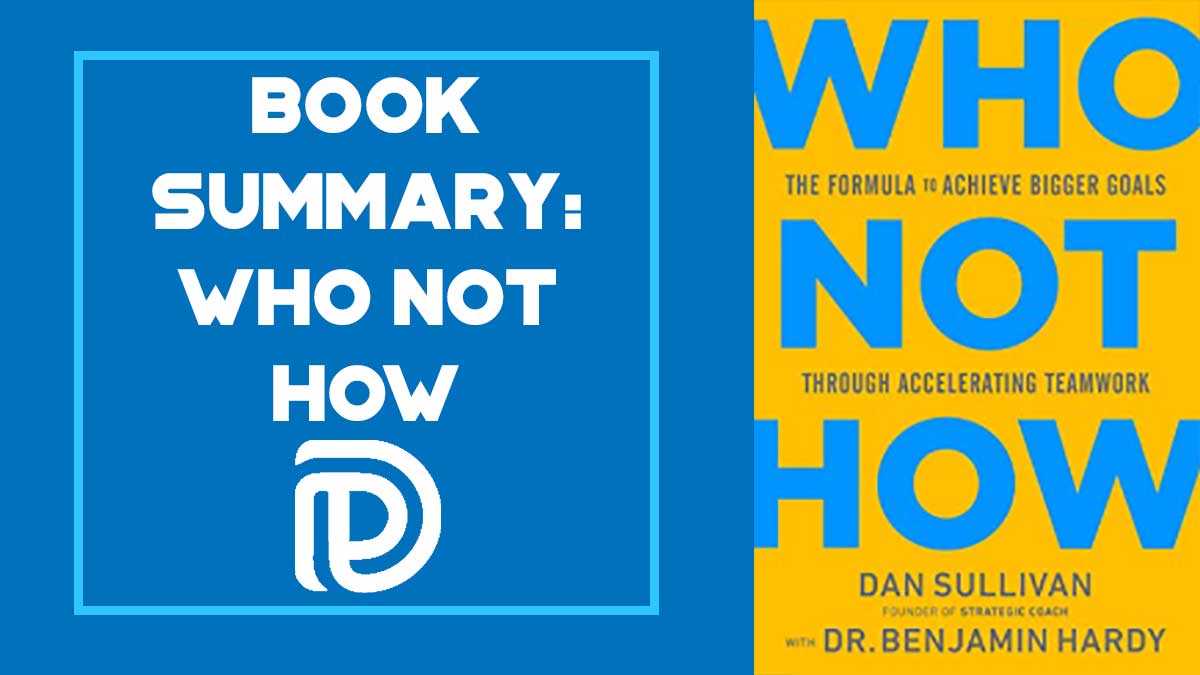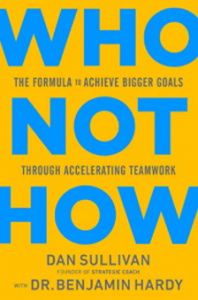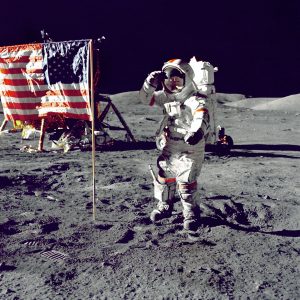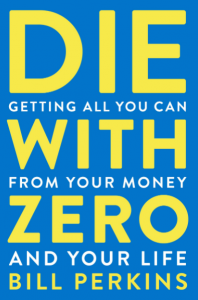There’s something special about those of us that grew up in the 80’s and 90’s :).
One of those reasons happens to be that during this time, the greatest basketball player of all time, Michael Jordan, was selected as the third overall pick in the NBA draft by the Chicago Bulls.
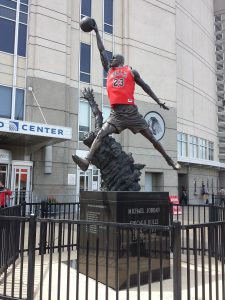
To put things in perspective of the type of team the Bulls were at that time, their record was a whopping 27-55.
In 1985, Jordan was named the NBA’s Rookie of the Year and from that year onwards, the Bulls reached the playoffs every season he was with them despite having a losing record each of his first three years.
Growing up, it was clear to see that he was a great player. But it wasn’t until I watched the documentary, “The Last Dance,” that I fully grasped and appreciated his entire story.
When Jordan joined the Bulls, their solution to consecutive losing seasons ended up not being a “How” but instead a “Who.”
Jordan couldn’t do it by himself which caused the Bulls to add a couple more Whos (Scottie Pippen and coach Phil Jackson) to begin their domination.
Stories like these are great which shows how teaming with the right people in your personal life will help catapult you to success.
This is one of the main reasons why I enjoyed reading Who Not How: The Formula To Achieve Bigger Goals Through Accelerating Teamwork by Dan Sullivan and Dr. Benjamin Hardy.
Don’t Miss Any Updates. Each week I’ll send you advice on how to reach financial independence with passive income from real estate.
Sign up for my newsletterWho Not How Book Summary
If you’re like most people, the first thing you do when trying to accomplish something is ask yourself, “How do I achieve this goal?”
The book notes that this is the wrong question you could ask assuming you want to be happy and have a successful life.
Unfortunately, this “How” question is what we’ve been taught our entire lives.
Think about it.
We’re taught in school from an early age that we need to do everything ourselves.
It’s sad but in some instances we’re taught that getting help from others is “cheating” and something we absolutely shouldn’t do.
But what if you asked a different question?
Fellowship of Christian Athletes
I was recently asked to join our local Fellowship of Christian Athletes board.
My friend Coach Fitz (former high school football coach) recently left his coaching position as he felt “led” to go another direction which involves bringing Christ to local high school athletes.
I can’t think of a better person for the job.
Shortly after his decision we went to lunch. As you can imagine, he was very uncomfortable being in this position as all he knew how to do was coach football.
I went on to explain to him that he was asking the wrong questions.
Instead of asking “How can I reach more athletes? or How can I start finding more donors?” he should find some Whos.
I told him that if he wanted to quickly accomplish his goals, then he must stop asking, “How can I accomplish this?”
A much better question to ask is, “WHO can help me achieve this?”
I told him to stick with what he does best, coaching! By that I meant put together a coaching staff of people that could support him to achieve his goals.
By him finding his Whos, he can sit back and let them create the results best for his organization.
If you find yourself in his same situation, trying to accomplish something challenging or difficult that you’ve never done before, the best thing to do is find a Who.
If you’re going to apply higher levels of teamwork to any aspects of your life, you’ll need to relinquish control over how things get done.
“There is no limit to the amount of good you can do if you don’t care WHO gets the credit.” – Ronald Reagan
Who Not How is broken down into 4 parts:
- Freedom of time
- Freedom of money
- Freedom of relationship
- Freedom of purpose
Part 1: Freedom Of Time
The book’s authors told a great story about a 16 year old kid named Richie Norton.
Richie wanted to get a job but his dad didn’t want him to. He realized that what Richie really wanted was money and thought this would be a great “teaching moment.“
His dad instructed both him and his brother to go to the local watermelon farms and buy all of the irregular shaped watermelons the farmers couldn’t sell with “seed” money he’d front them with.
When they got home, they started calling phone numbers of everyone they knew offering them the irregular shaped watermelons much cheaper than at the grocery stores.
They couldn’t have picked a better time to do this as it was during the 4th of July holiday. Within a few short hours, they’d sold all of the watermelon and made more than they would have made the entire summer working a full-time job.
When Richie first decided he wanted to have more money, he asked, “How can I make enough money to last me all summer?”
By asking “How?” he was going to give away his entire summer.
“How” costs a lot of time.
Richie’s dad was an entrepreneur and thought differently about time and money.
Related article: The Importance of Time Value of Money
When Richie initially spoke with his dad, his dad became Richie’s “Who” in showing him a more effective way to make money with the least amount of effort.
He now didn’t have to give away months of his time and freedom.
- “How” is linear and slow.
- “Who” is non-linear, instantaneous, and exponential.
Freedom of time is not fixed, but flexible. It’s not finite, but infinite. You never reach a place where you can’t improve your Freedom of time, because it isn’t solely about having all the time to do what you want. It also involves using your time on increasing quality activities.
The bottom line – “How” decreases your Freedom of Time.
When you begin taking your own time more seriously, then the second freedom, Freedom of Money, starts to take care of itself.
“Time is money.” – Benjamin Franklin
Money AVOIDS the person who doesn’t value their time.
Only those who improve their time, value it, and use it more effectively experience more freedom.
Once you start to add Whos to handle your Hows, then your time will be best spent on those things that make the biggest impact.
This section of the book talked a lot about freeing up your mind to focus your time on high-value activities.
In turn, this positively affects your earning capacity.
Do you want a freed-up mind or a caged one?
“Once I made a decision, I never thought about it again.” – Michael Jordan
You have to make investments to increase your freedom. You’ve got to step up and commit to doing things better and smarter, not solely working harder.
I find that this isn’t the case for our new Passive Investors Circle members.
They tell me they’ve gotten used to working longer hours “thinking” that will lead to financial independence instead of working smarter and allowing their money work for them.
Remember, you can’t have money freedom UNTIL you achieve time freedom.
Avoid the “cost” mindset
“Only once you give yourself permission to stop trying to do it all, to stop saying yes to everyone, can you make your highest contribution toward the things that REALLY matter.” – Greg McKeown
You’ve got to really learn the opportunity cost of How. By doing everything yourself, you miss out on unfathomable growth that comes by investing in Whos and utilizing your time and efforts on higher impact activities.
Too many people are trained to think in terms of cost, rather than investment. I know I was. Every time you invest in a Who (such as paying someone $1,000 to build a website), you save dozens or hundreds of hours that can be spent dong something more valuable and profitable.
Once you start this, it becomes a game changer in your life.
If you’re cost-minded, then by nature, you’re transactional and short-term focused.
You’ll see Whos as a cost, which means you’ll never be able to create the brilliant collaborations that are possible.
Whos, when selected properly to fit within your vision, are NEVER a cost.
Whos are an investment.
Part 3: Freedom Of Relationship
Freedom of Relationship means you have not only increasing access to whatever Whos you need to achieve your goals, but you also have deeper and higher quality relationships overall.
Your ability to succeed is based on the quality of the people in your life. (I couldn’t agree more!)
As you increase your Time and Money Freedoms, you’ll have greater access to Whos that not only help you achieve big goals but also give you a deeper sense of meaning and purpose in your life.
“What you seek is seeking YOU.” – Rumi
When meeting new people, it’s only natural to think, “What’s in it for me?” Instead we should ask, “What’s in it for THEM?”
Asking, “What’s in it for me?” is a terrible way to get access to people. It’s impossible to create transformational relationships with this selfish “taker” mindset.
On the flipside, if you find yourself attracting these types of people then avoid them like the plague.
They’re takers, NOT givers.
The book’s authors recommend that you don’t reach out to someone unless you have something meaningful to offer them.
Focus on providing value FIRST.
If you’re useful and generous, the world will be very good to you. You’ll have all the opportunity in the world you need because you’ll have Freedom of Relationship.
Never stop providing value to your Whos, especially the Whos that have in your life the longest.
Part 4: Freedom Of Purpose
Freedom of Purpose is the sense of vision and purpose you have for your life. Your sense of purpose expands as you see deep meaning and value in what you’re doing.
“Life is never made unbearable by circumstances, but only by lack of meaning and purpose.” – Viktor Frankl, author of “Man’s Search for Meaning”
The more deep and powerful your sense of purpose, the more meaningful your life will be. But also, the more committed you’ll be to do whatever is required to live that purpose.
Whenever you start to involve Whos to your projects, it becomes more important and impactful. This is an example of using the Freedom of Purpose through Who Not How.
By adding Whos (the right person) to what you’re doing, with greater capabilities and perspectives where you’re weak, the initial vision you had will automatically expand. Your goal becomes far better than anything you could conjure up on your own that leads to extraordinary results.
“Too much self-centered attitude, you see, brings, you see, isolation. Result: loneliness, fear, anger. The extreme self-centered attitude is the source of suffering.” – Dalai Lama
When you focus on “How,” you quickly become isolated in your goals. Focusing on How comes from the faulty reasoning that you are 100% responsible for getting the job done. This may lead to a good work ethic, but ultimately, it’s NOT smart.
There is no reward for doing lots of tasks and working yourself to death in mediocre fashion.
RESULTS are what counts.
Focusing on “How”:
- Makes you rigid and non-collaborative in your thinking
- Stress you out and stunts personal growth
- Leads to isolation in your goals and ultimately slows your progress
“Alone we can do so little; together we can do so much.” – Helen Keller
Focus on the bigger picture
There’s a famous story of when President John F. Kennedy visited NASA headquarters for the first time in 1961.
While touring the facility, he introduced himself to a janitor who was mopping the floor and asked him what he did at NASA.
The janitor’s reply was both surprising and inspiring.
“I’m helping put a man on the moon!” he told the President.
That janitor wasn’t just cleaning toilets; he was part of something bigger, something incredibly important.
He had a purpose for the work he was doing, and with purpose, you can do your best work – no matter what that work is.
Without purpose, your work can become shallow because it’s solely about making money. When driven by purpose, you stop doing the minimum required. You go deep within yourself and become a creator. You become willing to go above and beyond “the call of duty.”
You genuinely seek to address the particular problem you’re trying to solve. You genuinely care about those you’re serving.
The Best Way Moving Forward
So far this year, the two following books, Die With Zero and Who Not How have impacted me the most.
I’ve made it a point to do something every 90 days:
#1 Make a to do list all of the things I either don’t enjoy doing or not good at
#2 Find a Who to take these over for me.
Join the Passive Investors Circle
